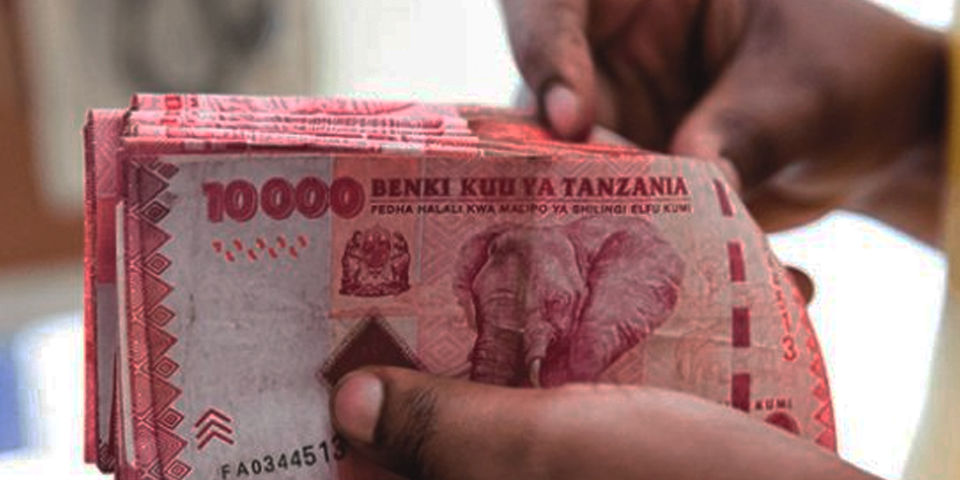This analysis delves into Tanzania’s financial stability by examining key trends in lending rates, treasury bills, and changes in the money supply. Using data from the EAC Statistics Quarterly Bulletin, it compares Tanzania’s financial sector’s evolution with other East African Community (EAC) countries like Kenya and Uganda.
It also highlights Tanzania’s competitive lending rates and the impact of its monetary policy on economic growth, investment, and financial stability.
Trends in Tanzania’s lending and deposit rates compared to other EAC countries
Tanzania’s lending rates have remained relatively stable in recent quarters, with an average rate of around 16.6% as of Q1 2024. This stability indicates a favourable environment for borrowers, encouraging business investments and economic activities. In comparison:
- Kenya experienced slightly higher lending rates, averaging around 17.3%, reflecting the impact of inflation and economic uncertainties on its financial sector.
- Uganda maintained rates near 15.5%, supporting economic recovery while controlling inflationary pressures.
- Rwanda and Burundi have also shown competitive lending rates but with higher volatility than Tanzania.
Tanzania’s balanced approach to maintaining stable lending and deposit rates has positively impacted its financial environment by making credit more accessible to businesses, particularly in the agricultural and industrial sectors.
Performance of treasury bills in Tanzania and their impact on domestic borrowing
Tanzania’s treasury bills have been crucial in managing domestic borrowing and stabilizing the money supply. The yield on Tanzania’s 91-day treasury bills was around 3.3% as of Q1 2024, slightly higher than its regional peers:
- Kenya’s 91-day treasury bill yield was higher, at approximately 10.3%, reflecting its need to attract more domestic investment despite budget deficits.
- Uganda maintained rates closer to 8.8%, while Rwanda experienced moderate yields.
The relatively lower yield on Tanzanian treasury bills suggests a reduced government borrowing cost, which supports lower interest rates in the broader economy. This efficient management of treasury bill yields helps curb inflationary pressures while ensuring sufficient liquidity in the financial markets.
Analysis of changes in money supply and its implications for Tanzania’s financial stability
The money supply in Tanzania has shown significant growth, with broad money (M3) increasing by approximately 8.9% in Q1 2024 compared to the previous year.
Also, read Does a Risk-Averse Banking Sector Restrain Economic Growth?
This expansion in money supply indicates a robust economic environment that supports higher levels of credit availability and consumer spending. Key factors contributing to this growth include:
- Increase in private sector credit: The private sector saw an 8.8% growth in credit, highlighting increased lending to businesses and consumers.
- Foreign exchange reserves: Tanzania’s steady accumulation of foreign reserves has also bolstered its monetary stability, allowing more flexible responses to external economic shocks.
Comparison with other EAC countries:
- Kenya also reported an increase in money supply but with slightly higher inflation rates, suggesting a need for careful balancing between growth and price stability.
- Uganda and Rwanda experienced moderate increases in their money supplies, focusing on stabilizing their respective economies through controlled credit expansion.
Tanzania’s prudent monetary policy, reflected in the controlled expansion of the money supply, plays a significant role in maintaining its financial stability. By carefully managing liquidity and credit flow, Tanzania ensures its economy remains resilient against regional and global economic challenges.
- Advice to policymakers: Tanzania’s alignment with EAC economic and monetary union goals positions it well for deeper regional integration. Policymakers should continue to focus on aligning fiscal and monetary policies with regional standards to strengthen its role in the East African Monetary Union.
- Advice to investors: Tanzania’s strong performance in maintaining economic stability compared to its EAC peers offers a reliable investment climate. Investors should consider sectors that benefit from regional integration, such as transport, energy, and logistics, which are critical for cross-border trade.
- Advice to stakeholders: Engage in regional collaboration to address industrial development and digital transformation gaps. Enhance Tanzania’s technological and infrastructural capabilities to ensure it remains competitive within the EAC’s rapidly evolving economic landscape.
Tanzania’s financial trends in lending rates, treasury bill performance, and money supply management indicate a stable and conducive economic growth and investment environment.
Compared to other EAC countries, Tanzania’s lower lending rates and effective management of treasury bills have enabled more accessible credit for businesses, stimulating economic activities. The country’s robust control of its money supply further underscores its commitment to maintaining financial stability and sustainable growth.
These strategic financial moves position Tanzania as a key player in the EAC’s economic landscape, making it a model for monetary discipline and financial resilience in the region.
As Tanzania continues to align its policies with regional goals, its focus on stability will help strengthen its role as a leading economy in East Africa.

